30 de diciembre 2020

Children of Exile: The Births “Sowing Hope” in the Camp of Nicaraguan Farmers

PUBLICIDAD 1M
PUBLICIDAD 4D
PUBLICIDAD 5D
The most shocking and representative images of 2020 in Nicaragua are linked to the pandemic, the de facto police state, and hurricanes
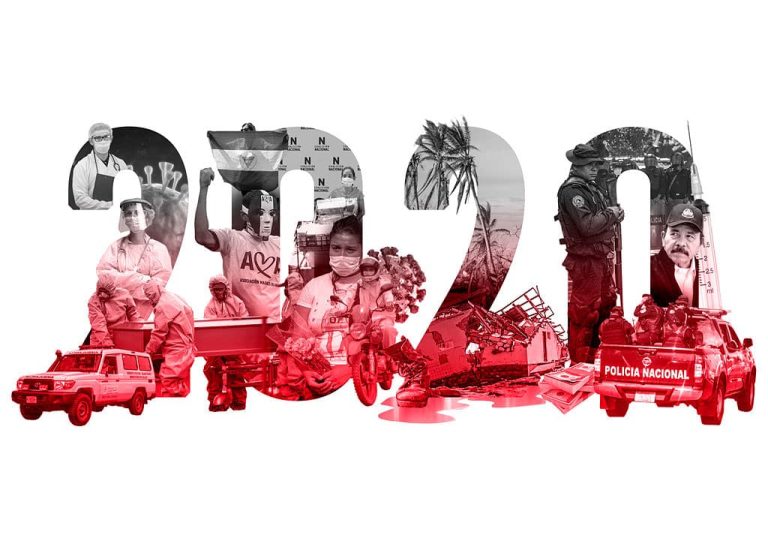
In Nicaragua, 2020 was marked by the Covid-19 pandemic, under a de facto police state and an economy in its third year of recession. Then two powerful hurricanes in the Caribbean region and mountains of the North made things worse. Moreover, the intensification of harassment and persecution against opponents, religious leaders and independent journalists was never-ending.

Contrary to all the World Health Organization guidelines to stay at home, the Ortega-Murillo Government promoted countless crowded activities. Such began with the “Love in times of Covid-19” march, boxing matches, car shows, food fairs and patron saint festivities, also contradicting the measures of the Catholic Church.
As a result of the mishandling of the pandemic, many hospitals were overcrowded with Covid-19 patients. Approximately 7,000 deaths linked to the pandemic were recorded, according to data from the independent Covid-19 Citizens Observatory. Although the Government only admits 162 deaths from coronavirus.
Nicaragua was also hit in less than 15 days in November by hurricanes Eta and Iota. The powerful storms left 25 people dead, almost 6,000 houses totally destroyed, and another 38,000 damaged. The total material damages were estimated at 740 million dollars.
The regime also intensified the de facto police state, including attacks and fabricated trials against journalists. Harassment against opponents led to several leaders being prohibited from leaving their homes or the capital. Dozens are constantly harassed in their homes.
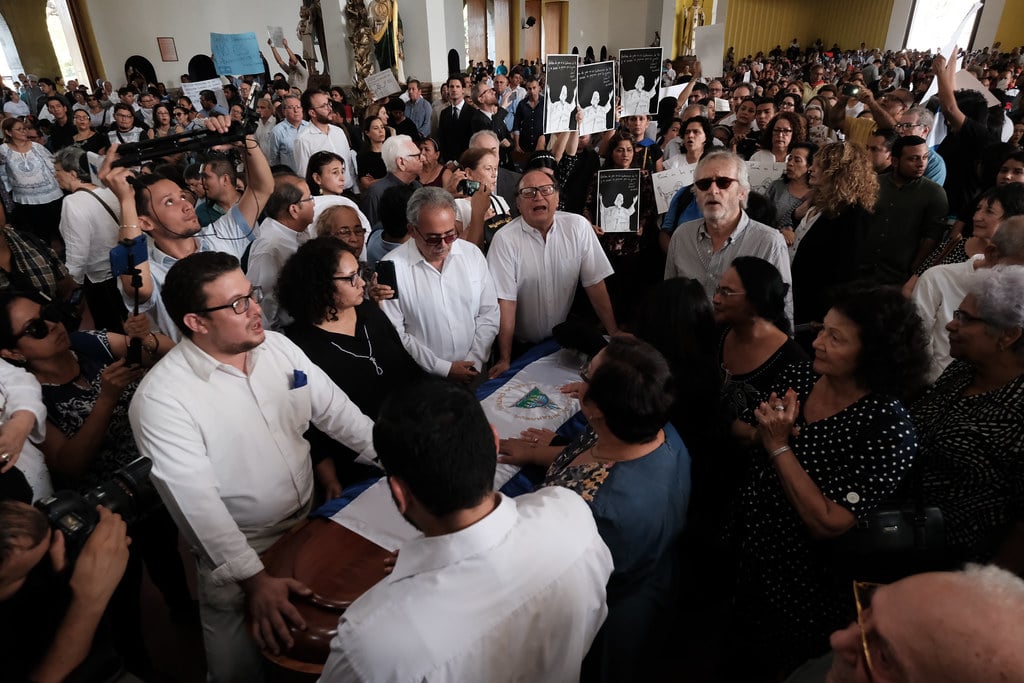
On March 1, poet and priest Ernesto Cardenal died after struggling with heart and kidney disease. During the funeral mass, held in the Metropolitan Cathedral of Managua, on March 3, government supporters interrupted the religious service, and attacked the poet’s friends and journalists. Photo: Carlos Herrera / Confidencial
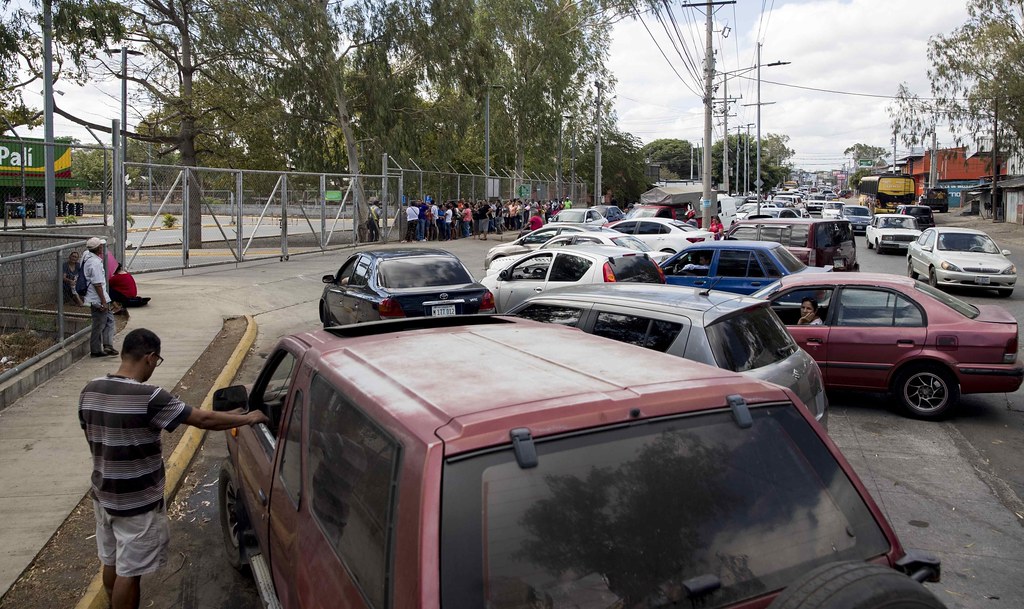
The pandemic became a reality in Nicaragua on March 18, when the Government announced the first positive case of Covid-19. The following morning, dozens of Nicaraguans began to stock up on food to begin a self-quarantine. The Government of Daniel Ortega never decreed a mandatory confinement. Photo: Supermarkets on March 19, Managua. / Jorge Torres / EFE
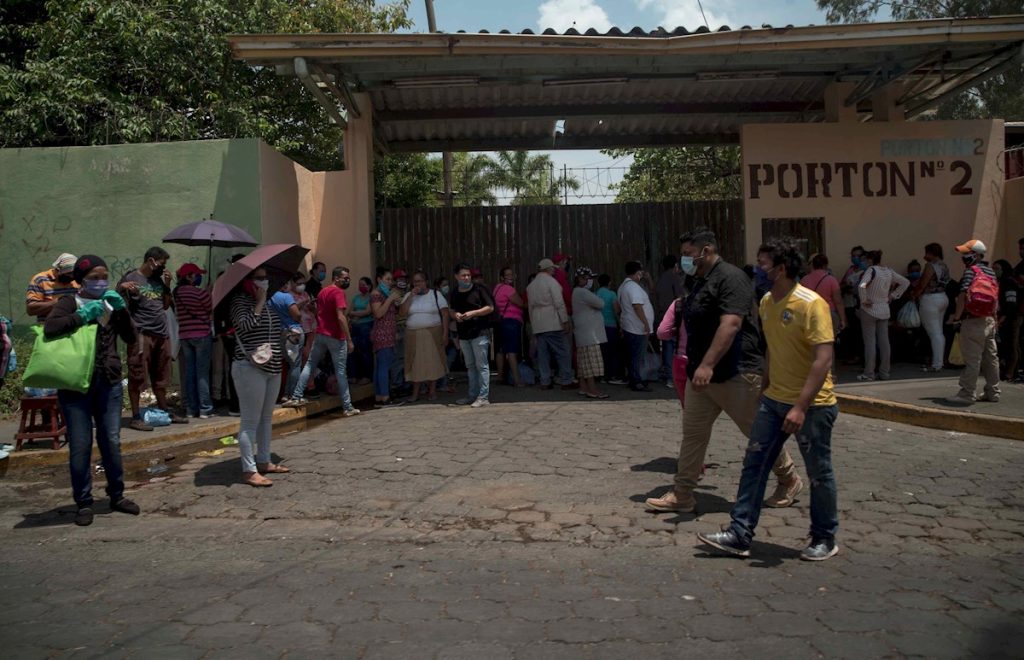
Gate number 2 of the “Hospital Aleman Nicaraguense” (German-Nicaraguan Hospital), in Managua, was the spot where dozens of citizens asked about their relatives, admitted with Covid-19, although hospital authorities said that it was due to respiratory problems. Photo: Jorge Torres / EFE
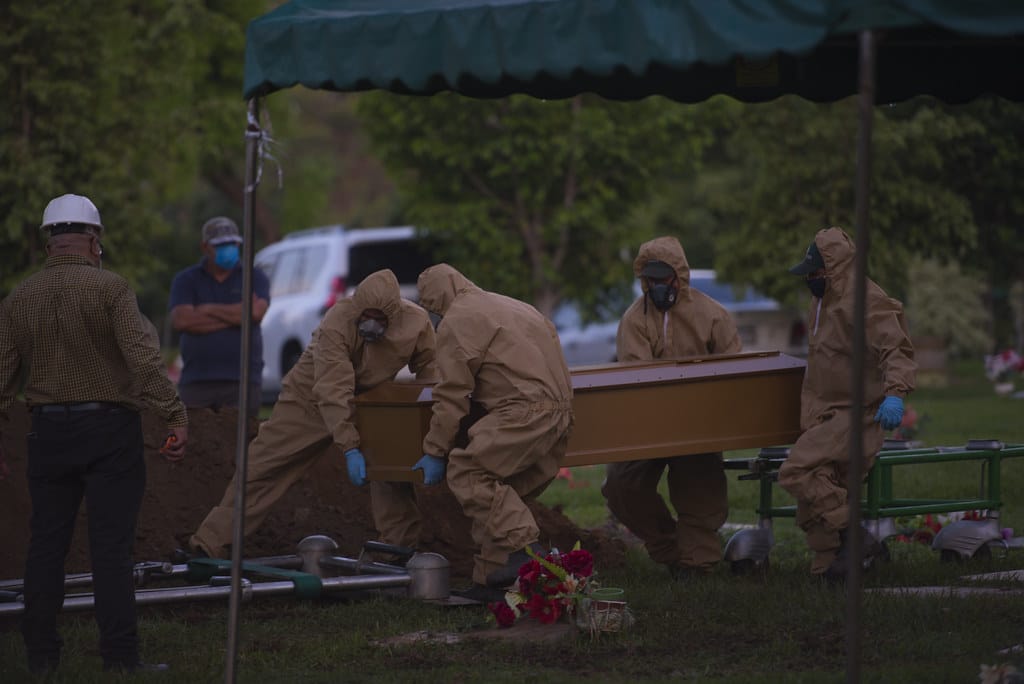
Weeks after the first Covid-19 case was known, hospitals began to overflow with patients. Sales of coffins increased, and videos of express burials went viral on social networks. Those who died from the pandemic were buried at night and sometimes only one relative could participate. Photo: Workers in their biosecurity suits at a burial in a cemetery in Ticuantepe. June 18, 2020. Nayira Valenzuela / Confidencial
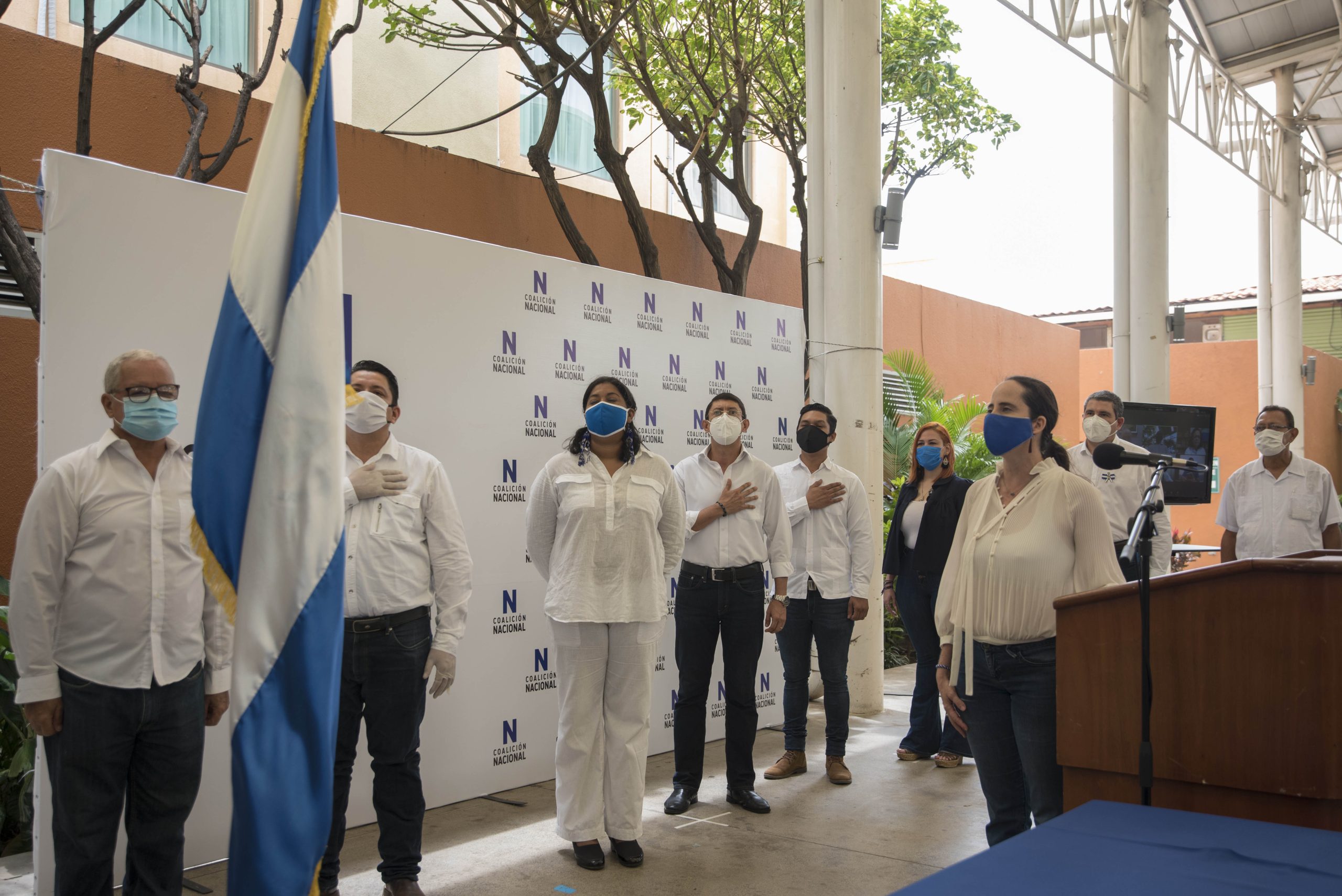
Four political parties and three opposition civil society movements signed the statutes of the National Coalition. Months later, the Civic Alliance withdrew from the opposition platform; and later, the Constitutionalist Liberal Party (PLC) was expelled. Photo: Nayira Valenzuela / Confidencial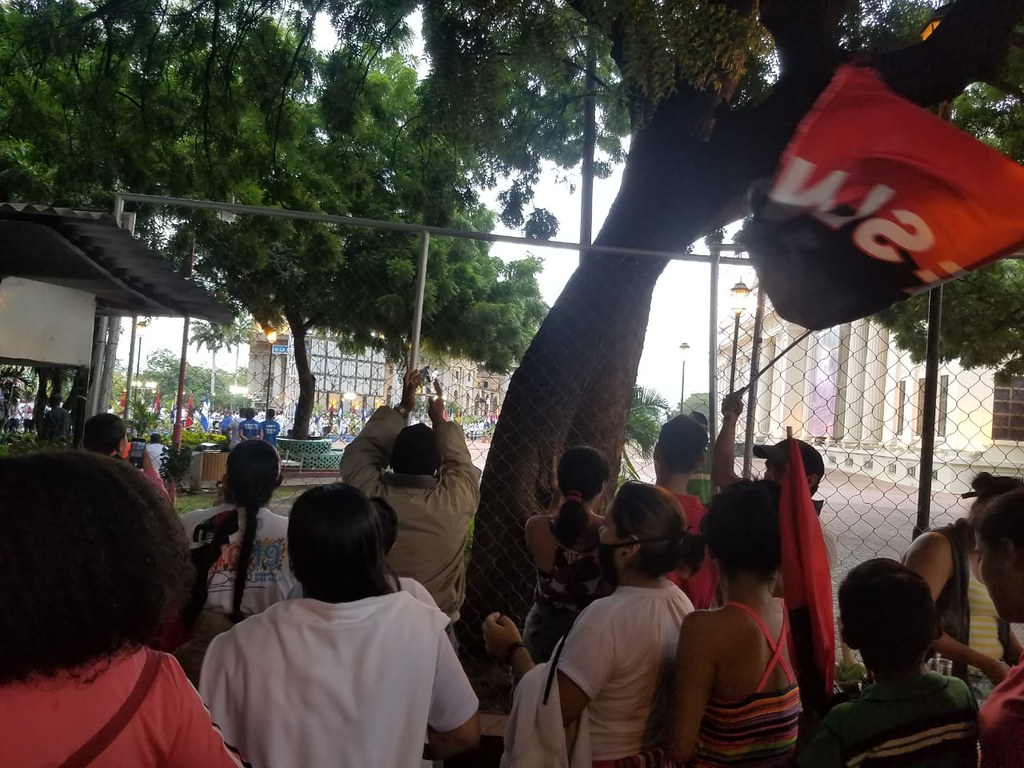
Amid the secrecy and doubts about how July 19th would be commemorated, due to the pandemic, the FSLN turned the celebration of the 41st Anniversary of the Revolution into an exclusive party. Only a select group participated in the central event. Those who were not on the guest list saw their leader through a metal fence. July 19, 2020. Photo: Nayira Valenzuela / Confidencial
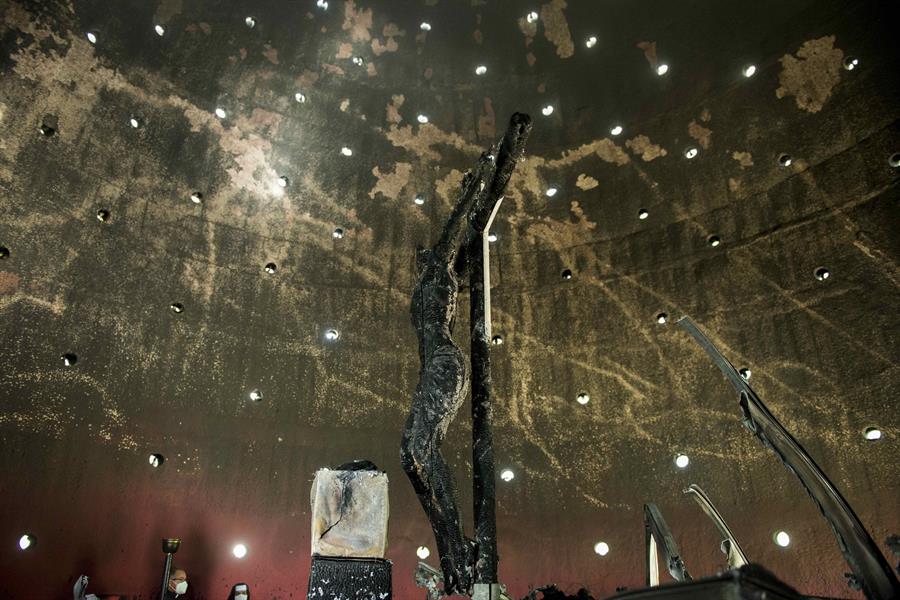
An unidentified person threw a Molotov cocktail into the Blood of Christ Chapel at the Managua Cathedral. It set fire to the 382-year-old image of Christ. This year, the Catholic Church has suffered dozens of attacks. These included thefts, desecration of temples and siege against religious leaders. Photo: July 31, 2020 Jorge Torrez / EFE
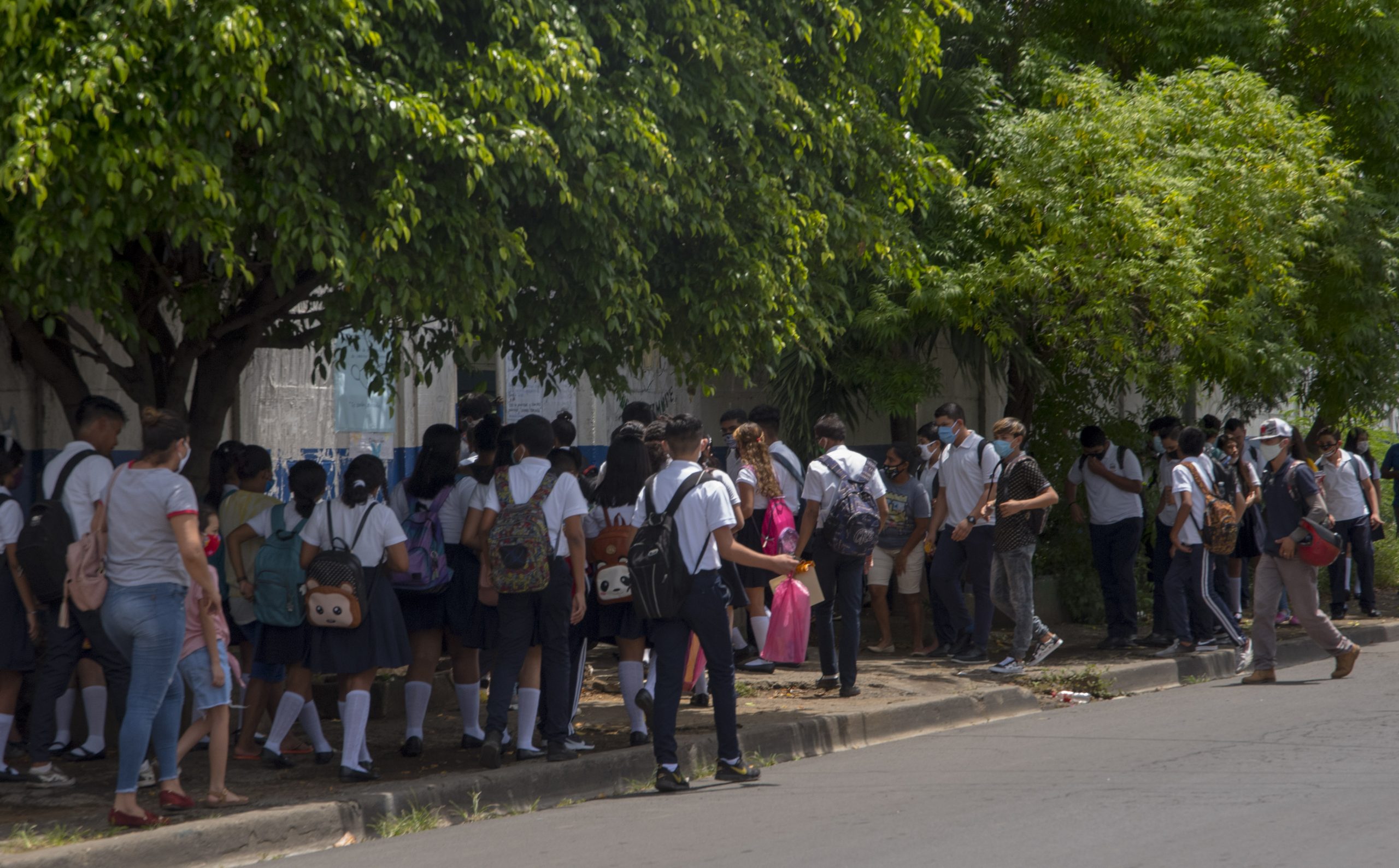
Although officially classes were never suspended in the public schools and institutes, the Government decreed several vacation periods between March and July. On July 22, classes resumed amid parent’s uncertainty about sending their children to schools or leave them at home. Photo: July 22, 2020. Nayira Valenzuela / Confidencial
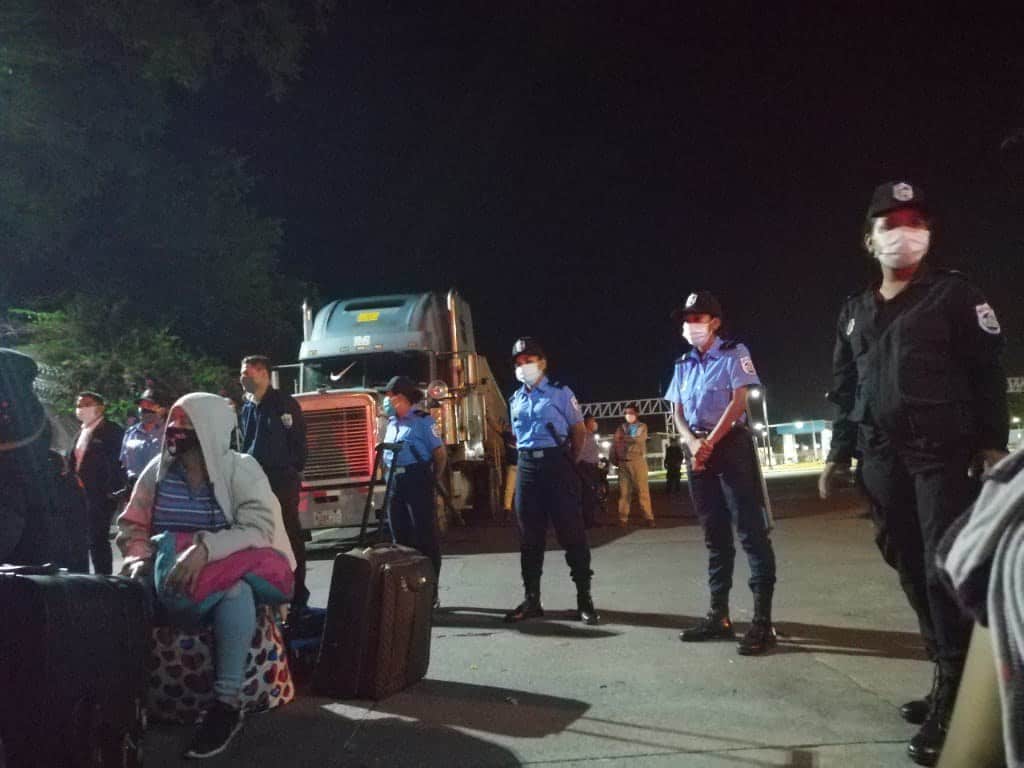
More than 500 Nicaraguans who lost their employment were returning unemployed from Costa Rica and Panama. They remained stranded in the open for more than a week between Nicaragua and Costa Rica. The Nicaraguan authorities refused to let them pass because they did not have a negative Covid-19 test. This measure was ordered when they had already started their return. Photograph of one of the first groups of Nicaraguans who tried to return to the country. Courtesy / Confidencial
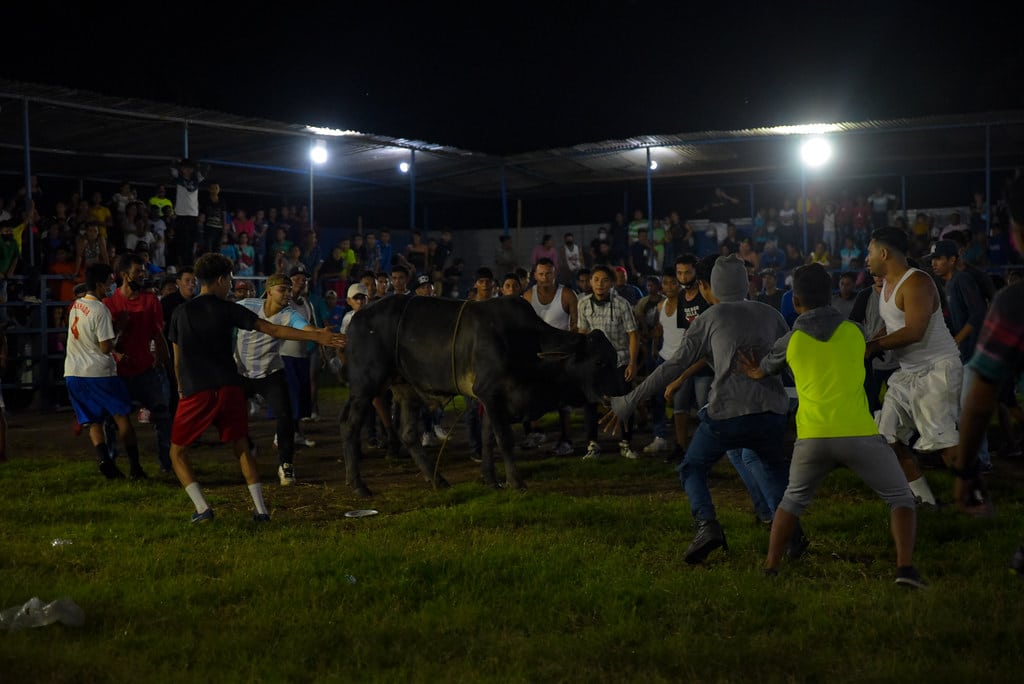
Despite the warning of a possible new outbreak, the Government and the FSLN municipal authorities continue to promote public activities. In the image, a rodeo event in honor of the Virgin of the Assumption in Granada. Photo: Granada, September 1, 2020 / Nayira Valenzuela / Confidencial
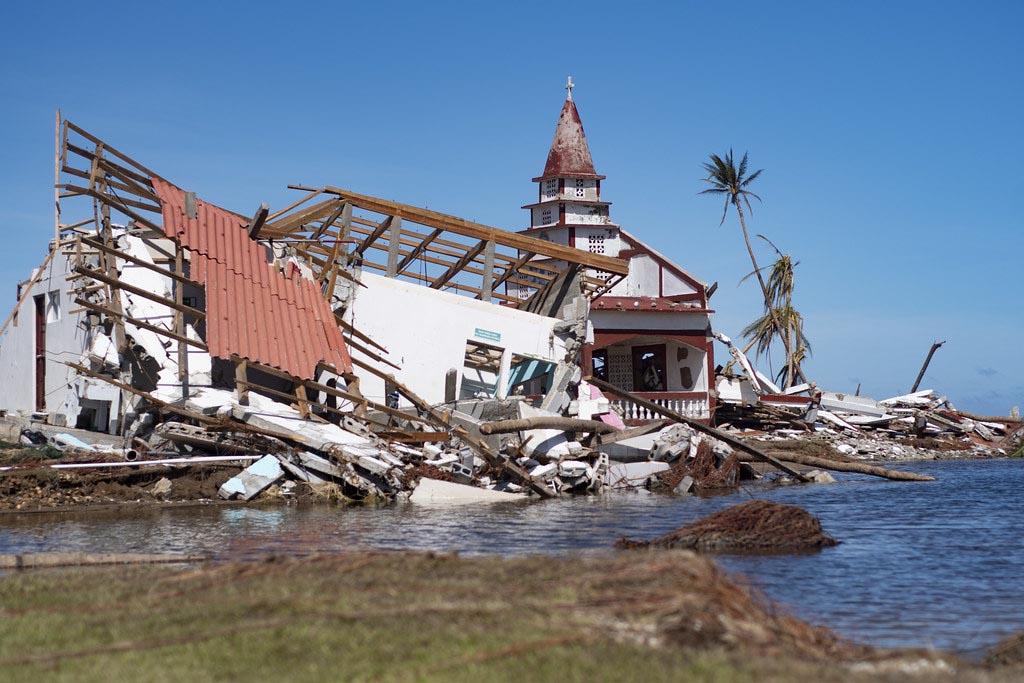 The North Atlantic Coast of Nicaragua was lashed in less than 15 days by hurricanes Eta and Iota. In a preliminary report of “material damage”, the Government indicates that at least three million people were exposed to the phenomena and 56 municipalities report material damages. Haulover, November 21, 2020. / Elmer Rivas / Confidencial
The North Atlantic Coast of Nicaragua was lashed in less than 15 days by hurricanes Eta and Iota. In a preliminary report of “material damage”, the Government indicates that at least three million people were exposed to the phenomena and 56 municipalities report material damages. Haulover, November 21, 2020. / Elmer Rivas / Confidencial
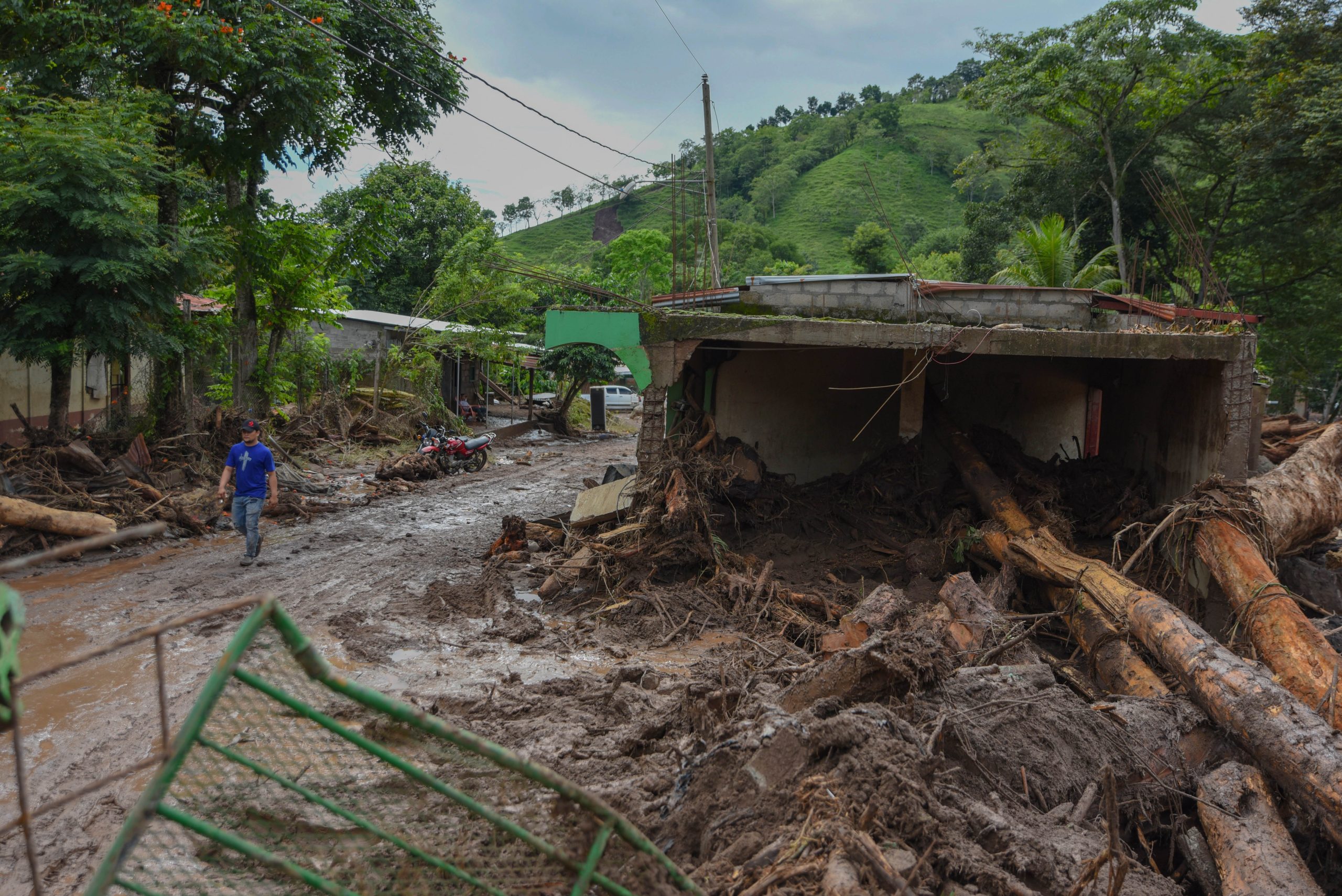
A panoramic view of a landslide in the San Jose de Kilambe community, in Jinotega. Some 15 houses were destroyed. According to official data, the passage of Hurricane Iota left a total of 21 deaths in Jinotega, Carazo, Nueva Segovia and Matagalpa. Photo: November 19. / Nayira Valenzuela / Confidencial
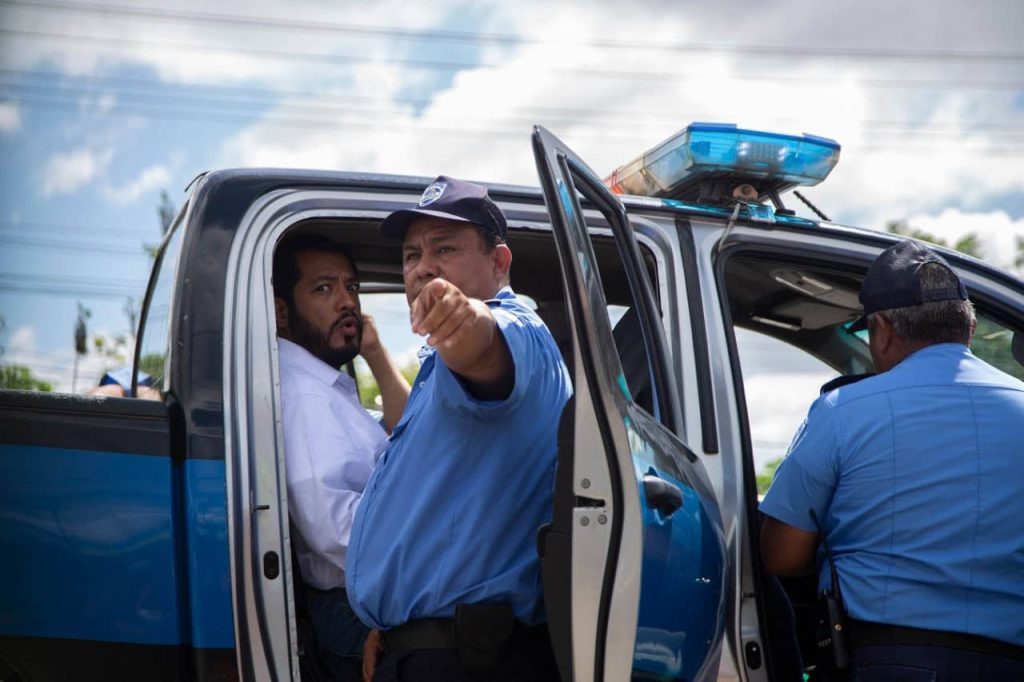
To counteract the local organization of the opponents, the Police launched a persecution campaign against opposition leaders, to prevent them from going outside of Managua. Several of them have de facto house arrest. The police maintain a permanent siege on dozens of houses of opponents and continue making raids and illegal arrests. Photo: September 6, 2020. Courtesy / Confidencial
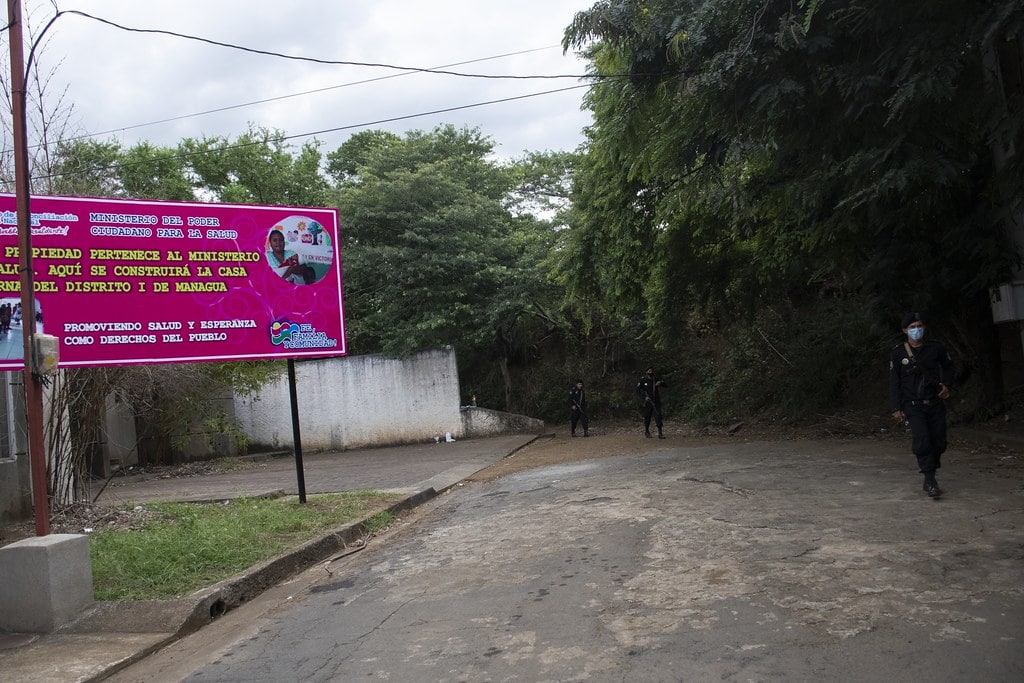
Two years after the “manu militari” occupation of Confidencial, 100% Noticias Channel, the Nicaraguan Center for Human Rights (CENIDH), the Institute for Development and Democracy (IPADE), the Center for Information and Health Advisory Services (CISAS) and the Popol Na Foundation, the regime of Daniel Ortega and Rosario Murillo notified -through several billboards on the buildings-, that the properties now “belong to the Ministry of Health.” A de facto deed that “makes their crime official” and sends “a harmful message” to Nicaraguan society. Photo: Claudia Tijerino / Confidencial
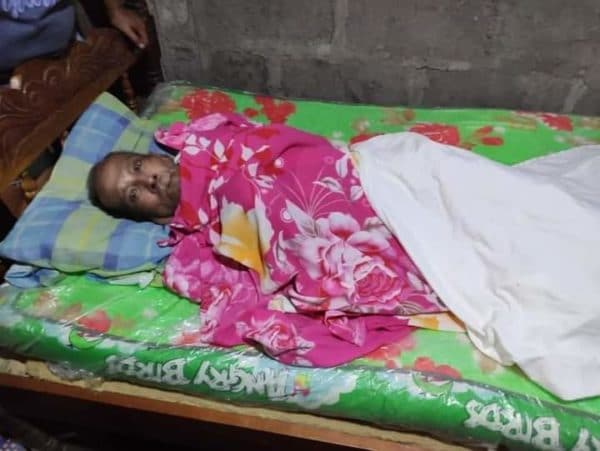
Political prisoner Justo Rodriguez, released on December 18, is in a “critical situation” and is “dying little by little,” according to his sister Emerita Rodriguez. Justo was arrested on April 20, 2020, when he participated in a protest commemorating the 2018 April Rebellion. He was then a robust man, who today is bedridden, almost completely paralyzed after suffering a stroke in prison. “When I saw him in prison, he told me that they had beaten him and dropped a spare tire on him, but I did not ask if it was on his face or on his back,” Emerita commented. Photo: Justo Rodriguez, released political prisoner. / Courtesy / Confidencial.
PUBLICIDAD 3M
Confidencial es un diario digital nicaragüense, de formato multimedia, fundado por Carlos F. Chamorro en junio de 1996.
PUBLICIDAD 3D